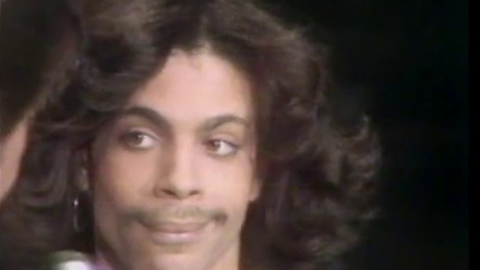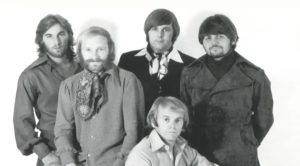10 Famous Songs That Failed To Be “Sexy”

Youtube / Tristen Green
We all know the classic formula: sex, drugs, and rock and roll. Bands like AC/DC built empires on these three pillars. But sex, a major player in the music industry, can be a tricky topic. Just like a fumbled romantic encounter, a song about sex can fall flat if not handled with finesse.
The worst offenders try way too hard. They veer into sleaze, making the listener feel incredibly uncomfortable. Think “creepy uncle at a wedding” vibes. But beware, the opposite extreme exists too. Some songs are so innocent, they make you wonder if the artist even knows what sex is.
This list dives into those awkward encounters in musical form. Prepare to cringe, because after listening to these questionable tunes, you might just question the entire concept of sexy altogether. Buckle up, because when sex, drugs, and rock and roll take a wrong turn, it gets messy.
10. “Afternoon Delight” – Starland Vocal Band (1976)
Let’s kick things off with an easy target. Despite constant criticism, “Afternoon Delight” by Starland Vocal Band isn’t a total disaster. It boasts a catchy 70s melody that could have been a primetime hit. The pop appeal is undeniable, but the band’s attempt to inject a sexual vibe backfires spectacularly.
Imagine your parents trying to explain the birds and the bees while awkwardly reenacting the act – that’s the energy this song exudes. The lyrics are filled with double entendres so nonsensical they barely register. While a touch of 70s cheese can be charming, “Afternoon Delight” overdoes it. This might be the perfect song for Ron Burgundy’s world, but it’ll likely clear the room on any modern sexy playlist.
9. “You’re All I Need” – Mötley Crüe (1987)
Hair metal and ballads? Not always a match made in heaven. While bands like Bon Jovi and Def Leppard delivered heartfelt songs, many others approached love with the subtlety of a teenager discovering their body. Mötley Crüe’s “You’re All I Need” is a prime example. Imagine a teenager with newfound hormones given songwriting tools – that’s the energy this ballad evokes.
The lyrics are questionable, to say the least. Inspired by Nikki Sixx envisioning himself writing memoirs from prison, the song depicts a man’s response to rejection: murder. Sixx intended it for his girlfriend, and unsurprisingly, it didn’t go over well. This attempt at a love ballad is more like a horror story, solidifying Sixx’s questionable track record when it comes to writing about love.
8. “Still Remains” – Stone Temple Pilots (1994)
Grunge wasn’t exactly known for its steamy love songs. Bands prioritized angst and personal struggles, with any hint of sexuality feeling more accidental than intentional. Stone Temple Pilots offered an exception with “Still Remains”, but Scott Weiland’s take on infatuation veers into stalker territory.
Musically, it’s a decent slice of grunge-pop. A catchy riff and the band’s signature glam leanings make it enjoyable. But Weiland’s lyrics take a disturbing turn. He fixates on a woman, describing wanting to bathe in her leftover bathwater.
By the chorus, he throws in a Romeo and Juliet reference about taking her to the afterlife, but the song’s driving rhythm clashes with this supposed romantic gesture. Weiland seems more lost than usual, missing the playful absurdity he brought to songs like “Plush” and “Dead and Bloated”.
7. “Marvin Gaye” – Charlie Puth (2015)
Charlie Puth isn’t exactly known for radiating sex appeal. His piano skills are undeniable, but behind the keys, he doesn’t exactly scream “ladies’ man”. So, what happens when he tries to tackle a song about getting intimate? “Marvin Gaye” takes all the heat out of the genre.
Puth sings about wanting to get physical with his partner in a way that would make your grandma blush. It’s the kind of sanitized sex talk parents give teenagers. Megan Trainor tries to inject some sensuality as a duet partner, but her attempt at Motown flair ends up sounding more like a tipsy aunt belting out a karaoke ballad. It’s all subjective, but this song leaves you wondering if either artist has ever even been on a date, let alone experienced the topic at hand.
6. “Sweet Hitchhiker” – Creedence Clearwater Revival (1971)
Creedence Clearwater Revival wasn’t known for shallow attempts at seduction. John Fogerty’s lyrics usually tackled life’s harsh realities, not cheap pick-up lines. But on their final album, with ideas running dry, Fogerty revisited a bad one: “Sweet Hitchhiker”.
Mardi Gras, Creedence’s last record, is mostly forgettable. “Sweet Hitchhiker” was supposed to be the saving grace, a fast-paced rocker about picking up a woman on the road. Fogerty throws himself into the performance, trying to sell the story of a hot chase. However, the ending takes a comedic nosedive.
After lusting over this girl throughout the song, Fogerty crashes his motorcycle in the final verse. The other woman just drives by, laughing at his pathetic attempt. Plenty of songs depict romantic rejection, but none do it with the slapstick humor of a Benny Hill chase scene.
5. “Christine Sixteen” – KISS (1977)
KISS’ outspoken founder Gene Simmons is known for his provocative lyrics and on-stage persona. It’s no secret that his songs often delve into themes of sexuality, as evidenced by tracks like “Nothin’ To Lose” and “Ladies Room”. However, the song “Christine Sixteen” crosses a boundary with its explicit content.
The song’s title alone evokes discomfort, hinting at a narrative that many find objectionable. It portrays a scenario where the protagonist, presumably much older, is infatuated with a young girl’s physical appearance as she returns from school, which has led to widespread criticism for its predatory undertones.
The track attempts to maintain the ‘Demon’ character that Simmons embodies, but the explicit lyrics make it challenging to dissociate the performer from the performance. Describing a 16-year-old as “young and clean” is particularly contentious, drawing ire from listeners who feel that such lines overstep the mark of artistic expression. The song’s reception suggests that if one were to voice such sentiments in reality, they would likely face severe backlash from protective figures in the girl’s life.
4. “Fuck Time” – Green Day (2012)
Green Day’s journey from adolescent anthems to mature songwriting is exemplified in their evolution from the album Dookie to their rock operas. Billie Joe Armstrong transformed from a youthful artist into a revered songwriter, infusing authenticity into songs about romance. However, with “Fuck Time” from their trilogy, the band seems to regress, reverting to a more primitive style reminiscent of their early days.
Originally intended for their side project, Foxboro Hottubs, “Fuck Time” ended up on Green Day’s album ¡Dos!. The song’s attempt at a 1960s vibe falls flat, with awkward lines seeking sexual healing.
The music may follow a standard blues pattern, but the lyrics, which include Armstrong’s moans, shift from sultry to unsettling. While Armstrong has a knack for portraying genuine affection, this track misses the mark, coming off as a clumsy attempt by someone unfamiliar with real-world romance.
3. “Sister” – Prince (1980)
Prince’s early career was defined by his willingness to push boundaries. Songs like “Darling Nikki” created a charged atmosphere with lyrics about sexual exploration. Dirty Mind, released in 1980, exemplifies this approach, but takes it a step further. The album’s title track hints at the controversial content within, and “Sister” makes a shocking statement.
Despite its catchy instrumentation, “Sister” delves into taboo territory, with lyrics that seem to describe an incestuous relationship. This lyrical choice overshadows any musical merit, leaving the listener with a sense of unease rather than the provocative tension Prince intended. It’s a reminder that even the most talented artists can misstep when pushing boundaries.
2. “Roller Skating Child” – The Beach Boys (1977)
Brian Wilson’s music was known for its emotional depth and focus on themes of love and devotion. This remained true throughout the 1960s, but a stark shift emerged with The Beach Boys’ comeback album, Love You, released in the 1970s. The song “Roller Skating Child” proved to be a jarring departure.
While Love You aimed to recapture the sounds of Wilson’s early rock and roll influences, applying that youthful style to his mid-30s perspective created a disturbing disconnect. Lyrics that could be interpreted as romantic advances toward a young girl raise serious questions, and the discomfort doesn’t end there.
Hints of grooming behavior and the unsettling follow-up track, “Hey Little Tomboy”, amplify the controversy. “Roller Skating Child” may have attempted to recapture the Beach Boys’ classic sound, but the lyrical content casts a long shadow, leaving listeners with a sense of unease rather than nostalgia.
1. “Cherry Pie” – Warrant (1990)
Hair metal is notorious for its frequently bizarre approach to love songs. Warrant’s “Cherry Pie” exemplifies this. While singer Jani Lane claimed he wasn’t enthusiastic about writing the song, the lyrics become increasingly problematic with each listen.
The song’s core metaphor compares a woman’s anatomy to a cherry pie, a comparison that raises more eyebrows than sparks romance. Food metaphors are common in rock music, but anyone familiar with a cherry pie’s composition might question the practicality, even beyond the obvious innuendo.
Unlike other songs celebrating the joys of physical intimacy, “Cherry Pie” comes across as a single, poorly developed double entendre that unravels with repeated exposure. Ultimately, Warrant’s attempt at a catchy tune falls flat, leaving listeners with a sense of awkwardness rather than rock and roll excitement.





















